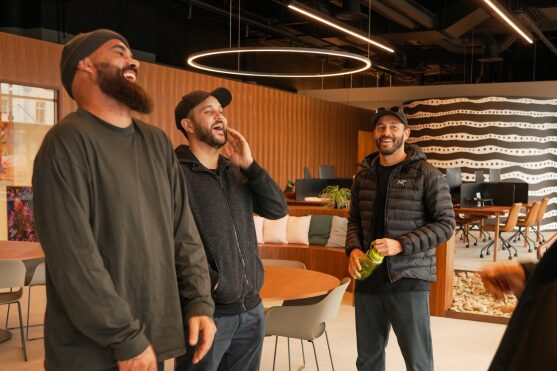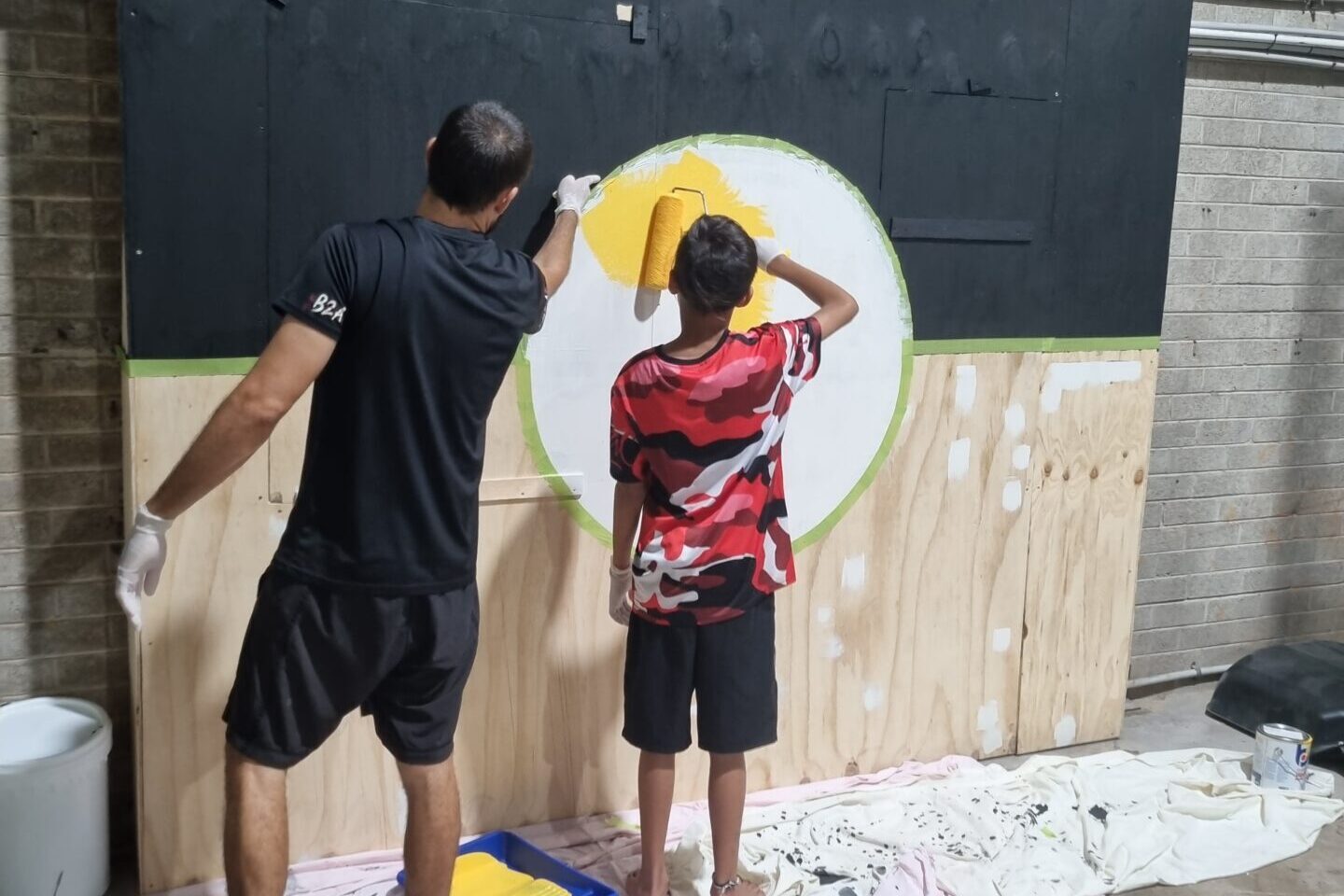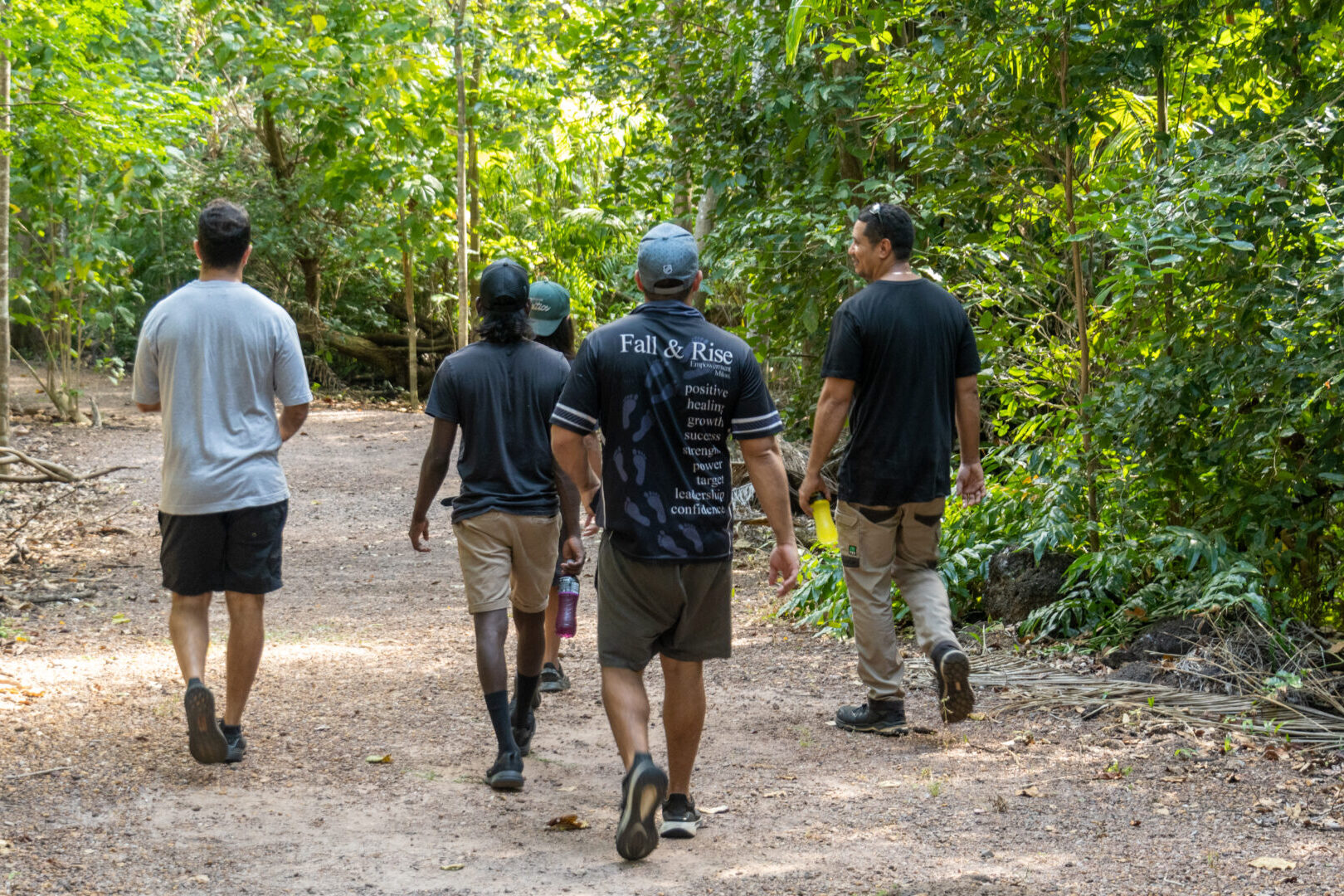Ngarrimili: ‘No red tape, no walls, just the best outcomes’ for First Nations enterprises

Anybody who has ever set up a business can tell you how hard it is, let alone the ongoing running and growth of a company. The paperwork, accounting, legal, staff management, tax management and other demands are remorseless. Now add to that the experiences faced by First Nations people, from the harm and hurt of colonisation and impact of the Stolen Generation, ongoing racism and discrimination.
This story was first published in Inspiring Stories of Giving Vol 2 in August 2024.
This is why Cormach Evans and his partner, Coco, established a national not-for-profit organisation, Ngarrimili, to assist aspiring First Nations executives as they establish companies and negotiate the wider commercial world.
Since 2017, Ngarrimili has been helping Indigenous businesses become a reality, from start-up to building success, including attracting finance, export expertise and anything else required.
Cormach, a Yorta Yorta man, and Coco previously started a profit-for-purpose business, Strong Brother Strong Sister, in Geelong, Victoria, which today is a DRG1 status charity. Establishing SBSS saw the pair experience some of the hurdles they would then go on to tackle with Ngarrimili. “That journey really saw a lot of barriers that apply for First Nations businesses – even just getting an ABN, but also the racism, discrimination from a lot of external parties or government services and everything else,” Cormach said.
“I was really lucky to have incredible people around me that could help me get that foundation set up and running and the mechanics of it all, so I wanted to be able to provide something like that to our community. Now, we’re working with thousands of different businesses across Australia, which is amazing to be a part of and a great privilege for us. For me, it was shameful to still see today the low expectations white Australia has of First Nations people, communities and business,” he said.
Ngarrimili’s vow is to remove red tape and hurdles and assist with whatever individuals need. “Whether it’s one bit of support or ongoing support, we might help with website design or setting up accounting, getting tax returns done, to legal advice to auspicing and a range of other things,” he said. “We’ve set up Ngarrimili to be that one-stop shop, but the most important thing is to have no barriers in place. You can access Ngarrimili at any time for immediate support. Everything’s personally tailored to the individual’s needs, their circumstances and what they’re looking to do.

“First Nations people are leaders in every space, but it’s about respect from non-First Nations people,” Cormach said. “We’ve been able to be sustainable for 80,000 years. We’ve cared for Country, we’ve been able to harvest, we’ve had farmers, first inventors and many other things. So, it’s in our blood, it’s natural and there’s obviously just been a lot of barriers in place. A lot of things have been stolen from First Nations people, whether it’s family, country or language and culture.
“The exciting time now is that we are taking it all back to where it belongs: us. Ngarrimili is fast-tracking those opportunities for First Nations businesses and what comes of economic prosperity is massive. That’s where real change can happen. We’re actually making a change in control and there’s power in it.”
Ngarrimili doesn’t ask for any return for the support. “We’re privileged to be a part of the journey,” Cormach said. “No red tape, no walls, just the best outcomes.”
Ngarrimili also contracts Indigenous companies for required services, as another layer of economic benefit. The ripples expand and, as Cormach said, the benefits flow to not just the company owner, but also their family and wider community.
The success of Ngarrimili’s work is everywhere. When Cormach travels, he said he sees people wearing House of Darwin and other First Nations brands everywhere, across Australia and even overseas. House of Darwin is a label established by Shaun Edwards with support from Ngarrimili. Not only is the brand now exporting internationally and providing the Northern Territory with local surf wear, but Shaun has created his own foundation to refurbish basketball courts in remote areas, as a hub for Indigenous youth and communities.
In fact, Ngarrimili is part of a zeitgeist where Cormach and Coco, Shaun, and others of a similar age, energy and drive across Australia are working together to bring meaningful change to Indigenous lives, embracing different visions but a shared dream of First Nations economic success and independence. “It’s quite beautiful to have strong Aboriginal men working collaboratively and when one of us is down, we all get around each other. I think there’s real beauty in it, and we’re sort of showcasing that to the younger ones as well.” Cormach said.
Jye Cardona (Kungarakan, Bardi, Bunarugumm) and Darren Damaso (Larrakia, Malak Malak, Yanyuwa) are part of this movement, driving another NFP, Brother to Another, which has been supported by Ngarrimili, originally through auspicing the Bright Moon Trust funding while they were waiting for charity status. Brother To Another is achieving positive outcomes for young Indigenous men, especially ones caught in the life-threatening confines of the youth justice system.
Jye founded the organisation after volunteering within the Don Dale Youth Detention Centre’s difficult B-Block, where First Nations inmates told him they lacked Indigenous mentors, case workers or safe spaces where they could feel welcome. It was those inmates who came up with the foundation’s name, Brother to Another.
Darren said Brother To Another, lacking any real support from the NT’s Department of Territory Families, Housing and Communities, is now supported by several major trusts and foundations, including Bright Moon, the Paul Ramsay Foundation and the Tim Fairfax Family Foundation (TFFF). It has gained momentum inside and outside the walls of Don Dale, supporting young men and their families to interact with community safely, on land and sea in the NT.
Neal Harvey, TFFF’s CEO, said: “Jye is a visionary with lived experience of the issues that need addressing. He is a remarkable young man and has set out to do something very difficult, in challenging circumstances. He is certainly deserving of our support.
“Jye is trying to turn the lives of young, Indigenous incarcerated boys around so they feel loved and valued, and see a place for themselves in society. That’s an intergenerational goal but Indigenous youths are over-represented in our detention facilities and that simply has to change,” Neal said.

Brother To Another is connecting young Indigenous men with their culture, language and purpose, while also providing a rented but important community space in the Darwin suburb of Winnellie. It was where three generations of some families turned up to reflect and support each other in the challenging wake of the Indigenous Voice to Parliament referendum. The future aim is for Brother To Another to own some land and infrastructure and to create self-determination and a lasting impact for the community.
“We work from a cultural determinants of health framework that connects young people and families to Country, family, kinship, ancestors, spirituality, and physical and mental wellbeing,” said Darren. “Working off that, we’re able to attack the problem from a strength-based perspective.
“Historically for a long time now, it’s always been, ‘What’s the problem with Aboriginal people?’ We’re the sickest, we’re the hardest done by, we’re the most incarcerated. So, just flipping that and making it a strength-based approach has been really, really good.”